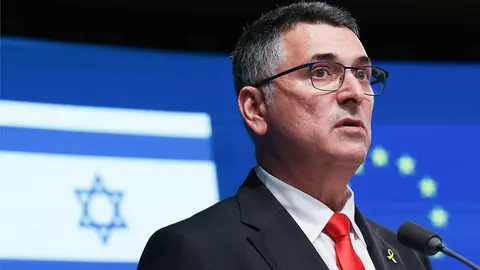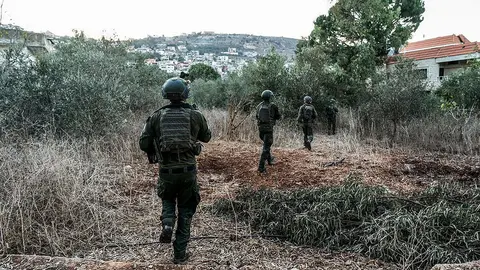Israel continues selective operations in Lebanon despite ceasefire with Hezbollah

Israel continues to carry out selective military operations in Lebanon despite the ceasefire between the Israeli Army and the Shiite armed militia Hezbollah.
The attacks are part of what are referred to as ‘special and specific operations’ within Lebanese territory.
An Israeli drone strike on Thursday killed a man identified by the Israeli Army as Muhammad Jamal Murad, a Hezbollah artillery commander in the coastal sector.
On Tuesday, a drone strike hit a car in a nearby village, killing another man who, according to the Israeli army, was involved in ‘developing Hezbollah's artillery capabilities.’
Three other people, including a Palestinian member of Hamas allied with Hezbollah, were killed in a separate attack in northern Lebanon on the same day.
Unsatisfied with the pace of Hezbollah's disarmament by the authorities, Israel appears determined to target the Iranian-backed militant group in a long-term confrontation, analysts say.
David Schenker, former assistant secretary of state for Near Eastern affairs and a current fellow at the Washington Institute, has noted that ‘Israel will undoubtedly persist with its now routine air strikes against Hezbollah targets’ in Lebanon.
‘In fact, given the Lebanese government's long-standing aversion to confronting the group, Israeli military action could be Beirut's preferred scenario,’ he added.
The 27 November ceasefire sought to end more than a year of hostilities with Hezbollah.
Under its terms, Hezbollah would withdraw its fighters north of the Litani River, about 30 kilometres from the Israeli border, leaving the Lebanese Army and United Nations peacekeepers as the only armed parties in the region.
Israel had to withdraw its troops completely from the country, but has kept them in five locations it considers strategic.
On Wednesday, the Israeli army said its troops had entered Lebanon to dismantle Hezbollah infrastructure near the Israeli border in order to ‘prevent Hezbollah from re-establishing itself in the area.’
In a speech last week, Hezbollah leader Naim Qassem resisted any discussion of disarmament.
He declared: ‘Threats will never force us to submit. It is not we who must give in; it is Israeli aggression that must end. Do not ask us to lay down our arms.’
He said Israel must first withdraw from occupied territory, end its air strikes, release prisoners and allow reconstruction to begin.
Only then, he added, would Hezbollah be prepared for a ‘second phase’: a debate on national security and a dialogue on defence strategy.
But for the group, a dialogue on national defence does not imply acceptance of disarmament.
Analysts say the group does not feel the need to plan to give up its weapons, which it considers essential not only to confront Israel but also to maintain its influence in Lebanon.
Meanwhile, Israel does not seem to share the enthusiasm of US envoy Thomas Barrack, who said on Monday that he was ‘incredibly satisfied’ with Lebanon's response to a US proposal on Hezbollah disarmament, following meetings in Beirut.
Barrack's proposal, delivered to Lebanese officials during his last visit on 19 June, would see Hezbollah completely disarmed within four months in exchange for Israel halting air strikes and withdrawing troops from positions in southern Lebanon that they still occupy after a war last year.
The group has already handed over some weapons and withdrawn from southern areas under a ceasefire agreed last year. However, the authorities have been reluctant to press Hezbollah to disarm north of the Litani River.
Hezbollah is trying to regroup after Israel crushed its leadership in a bombing campaign last year, one of many fronts on which it has inflicted severe blows against Iran and its allies since the start of the war in Gaza in 2023.
‘As long as Hezbollah retains a residual military capability, Lebanese politics will not reflect the new post-war reality and sovereignty will remain elusive,’ Schenker said.
Western nations have long argued that changes in the region could provide Lebanon with an opportunity to strengthen state institutions, which have remained weak for decades in the shadow of powerful sectarian groups.
But the West and Arab Gulf countries now feel more encouraged by developments in Syria than in Lebanon.
Barrack said regional changes provided an opportunity for Lebanon, noting that Syria's new government, which took power last year after the fall of Iranian ally Bashar Al-Assad, was now opening a dialogue with Israel.
‘Dialogue between Syria and Israel has begun, just as Lebanon needs to reinvent it,’ he said. ‘If they don't want change, that's fine. The rest of the region is moving forward at full speed and they will be left behind.’










